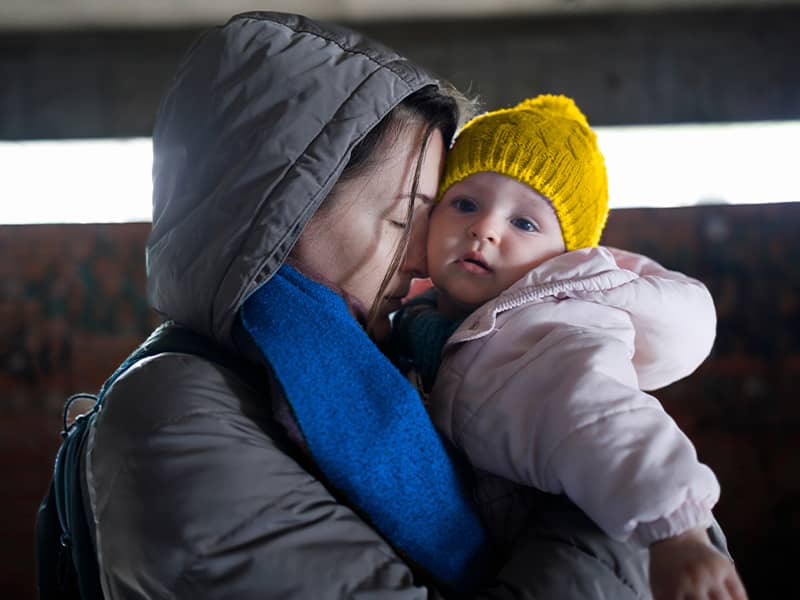The story of Elian is Dickensian in its cruelties, for it contains storms at sea, the death of a young mother, the fustian posturing of lawyers and government officials--and the boy himself all but lost in the black hole of political manipulation.
It does not make Elian's tale less sad to recall a similar sensational case that, with a different cast of characters, occurred in the mid-19th century.
In 1858, Pope Pius IX--whose huge black coach pulled by farm-size white horses was often spotted by the young Henry James as it rumbled across the ancient Roman stones--had a 6-year-old boy, Edgardo Mortara, kidnapped from his parents' home in Bologna and brought to live with him in the Vatican.
Pio Nono, as he was known, could order such an action because at that time the papal states still existed, Bologna fell within them, and the police were, in fact, in the pope's service.
Pio Nono, who reigned for 42 years, later managed the declaration of papal infallibility through the first Vatican Council. He had no doubts about what he did or how he did it.
This dramatic episode took place after the pope heard that a Catholic woman had baptized Edgardo when he was ill during his first year of life. The papal investigators in Bologna believed the woman and the police removed him from his home.
As told by David Kertzer in his remarkable book, "The Kidnapping of Edgardo Mortara" (Knopf, 1997), the officials gave his parents no explanation for this extraordinary action. While they tried on their own to find out what happened, the pope announced Edgardo would be raised as a Catholic.
Against an explosion of international publicity, the parents traveled to Rome to retrieve their child but were allowed only to visit him and were not permitted to take him home.
The pope took the view somewhat parallel to that taken by those who claim that Elian should not be returned to his father because the environment is too hostile. The Vatican newspaper suggested that, were he returned home, the boy would be forced to renounce the faith, not mentioning that it had been forced on him.
Playing one of the most insidious of anti-Semitic charges, the article's author asked, "Would it seem right and generous to place this innocent boy on this cross?" This question resonated with the hateful rumors that Jews crucified Christian boys.
The pope justified himself by claiming, as he would in later issuing his notorious Syllabus of Errors, in which he condemned everything he thought modern, including freedom of conscience, that he was taking a stand against the ways of the secular world. He resisted all entreaties from concerned Catholics and others who wanted the boy back with his parents.
When a foreign minister told the pope that the modern world was anxious for the boy's being re-united with his parents, Pio Nono replied, "What you call the modern world is simply Freemasonry."
The pontiff told a journalist sympathetic to him that the trouble over Edgardo was caused by "the freethinkers, the disciples of Rousseau and Malthus."
The pope rebuffed every delegation and ridiculed every argument as when he scribbled on the bottom of a letter from a Catholic protesting his actions, "...doesn't know his catechism."
He turned away foreign delegations, including the distinguished English Jewish philanthropist, Sir Moses Montefiore, rationalizing the criticism as uniting him with the misunderstood Jesus.
How did it come out? How will it all come out for Elian Gonzalez?
These are intertwined questions because the factors and forces arrayed in both cases are so similar: a parent seeking redress, a powerful state resisting, if not shrugging off, all criticism. And what of fatherhood and its rights and what, in the long run, will help or harm the boy? And who will claim political triumph and how hollow may it seem viewed later in a better light?
The pope raised the boy, often surprising crowds by opening his red cloak to reveal the child hiding in its folds. He felt vindicated when Edgardo became a priest--when the pope got that dangerous thing, what he prayed for.
A few years later, another Jewish boy was baptized in Rome and kept from his family. This stirred the embers of the Mortara kidnapping and, according to some historians, contributed to the uprisings that stripped the pope of his territories and temporal power in 1871.
"It is not good," John Henry Newman wrote at the time, "for a pope to live 20 years (in office)."

